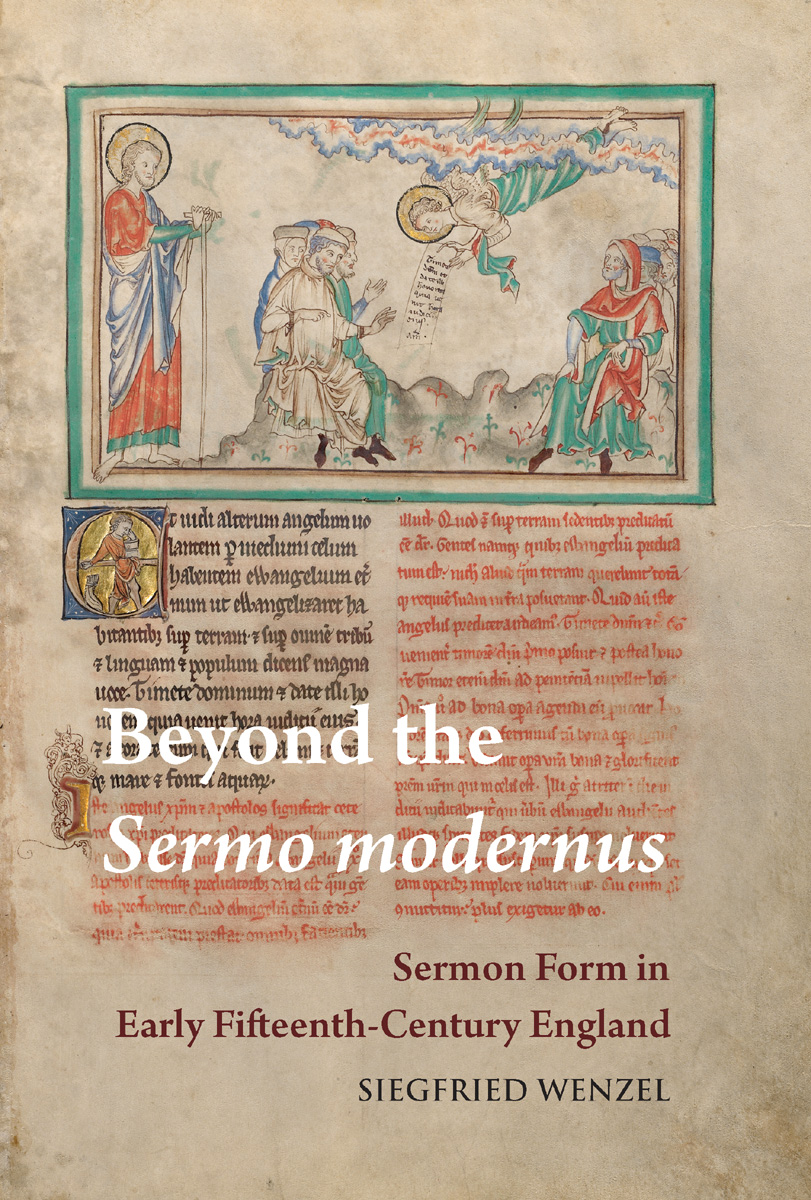
Beyond the Sermo modernus: Sermon Form in Early Fifteenth-Century England
Studies and Texts 222 • 2021 • xii, 282 pp. • ISBN 978-0-88844-222-2 • Cloth • $95
In England, as well as on the continent, the early fifteenth century saw a slackening of rigorous academic work in theology and at the same time a stronger interest in biblical and devotional approaches and practices. This book addresses the question of whether, and if so in what way, such a change may also have occurred in preaching by investigating the form in which sermons were constructed, to determine whether a new development or innovation replaced the scholastic sermon, or sermo modernus, in use from the later thirteenth century on. The volume concludes with editions of sermons drawn from major works created in England between the final years of the fourteenth and the middle of the fifteenth century.
This study addresses the question of whether the renewed interest in biblical and devotional approaches that some scholars have found in fifteenth-century theology also affected preaching. In answer it points to significant changes in the structure of sermons, both Latin and English, that have survived from England. In them the form of the sermo modernus or scholastic sermon, in which the entire discourse is based on a short string of words called “thema” – a form that was almost universally employed in the thirteenth and fourteenth centuries – gives way to retelling the entire lection (usually the Gospel) and to pointing out its moral meaning verse by verse in a process called postillation. Moreover, these sermons occasionally raise questions (quaestiones) or problems (dubia) caused by the biblical text and answer them. Major criticism of the sermo modernus as well as suggestions for different approaches to preaching are found in the work of Thomas Gascoigne. Dealing with the entire Gospel in a sermon characterizes three commentaries of the period: Philip Repingdon’s Sermones super evangelia dominicalia written perhaps at the end of the fourteenth century, the mid-fifteenth-century Congesta, and an early fifteenth-century lecture course by an anonymous Franciscan on sermons for the saints and for major feasts. These works have received little or no attention from modern scholars. They are here discussed and illustrated with hitherto unedited excerpts. Preaching the entire Gospel can further be found in sermons by individual preachers who lived near the end of the fourteenth and the early fifteenth centuries: John Felton, Nicholas Philip, John Dygon, Robert Rypon, John Wyclif and his followers, and others. As a result, while not entirely innovative in this respect, these preachers indeed turned away from the structure and devices typical of the traditional sermo modernus and instead dealt with the entire lection they preached on.
Author
Siegfried Wenzel, professor emeritus of English at the University of Pennsylvania, has written widely on medieval preaching and its historical contexts, on the vices and virtues in the middle ages, and on Chaucer, Langland, and Middle English literature.
Endorsements
“On Latin sermons by English preachers Siegfried Wenzel is the world's leading specialist. These sermons are key evidence for vernacular preaching too: most surviving sermons were models for use in ‘live’ preaching and it was normal to use Latin models to prepare for sermons in English to the laity. Beyond the Sermo modernus is thus relevant to the history of popular piety as well as of Latin culture. Scholars are familiar with the dominant late medieval form of preaching, but Wenzel shows how an older form became prominent again in late medieval England. Once again, preachers commented on the whole of gospel or episcopal readings. This inculcated a different sort of religious mentality. Wenzel investigates the theory behind the revival as well as practice, on which he comments with literary critical flair. He also provides immaculate editions from manuscripts – a model for textual critics – and translations which make the original sources available to students as well as scholars.” — David D’Avray, University College London
Ordering
Customers in North America please order through University of Toronto Press Distribution by phone (1-800-565-9523) or by email (utpbooks@utpress.utoronto.ca). If you would like to order through UTP Distribution using another method such as mail or fax, please click here for a full list of contact and ordering methods. PIMS books are also available on Amazon.ca (for Canadian customers) and Amazon.com (for customers in the U.S.).
Customers outside North America please order through Brepols Publishers. PIMS books are available through the Brepols online catalogue.


